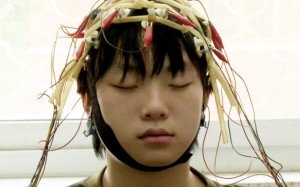Internet Addiction Treatment Involves Military-Style Training, Leaves One Dead
Posted: 06/16/2014 8:00 amA 19 year-old is dead and a 14 year-old was seriously injured after undergoing intensive physical training at a military-style boot camp in Zhengzhou, Hebei Province to cure them of Internet addiction.
On May 19, a teen named Lingling repeatedly begged the teacher at Boqiang to stop the training session according to the father of a younger teen named Xinxin who survived the training. The exercise involves lunging forward and bending backward (前倒后倒) but specific details were not provided. The father said his daughter Xinxin saw Lingling was bleeding and covered her belly with her hands, but the training was still not called off and continued on for another two hours, reported China National Radio on June 15.
Lingling eventually collapsed, but one teacher surnamed Ma accused her of playing possum while she lay unconscious on the ground. Water was forced into Lingling’s mouth at one point, according to Xinxin.
The reason for the punishment was not disclosed in the report, and when Xinxin asked teacher Ma what she had done wrong, Ma ordered Xinxin to do 500 “forward lunges” before revealing anything, the report said.
When reached by the newspaper, the school did not shy away from admitting it employs the physical punishment, and said doling out punishment was inevitable in the camp. In more than 300 treatment centers like this one across China, teens undergo military-inspired physical training. Additionally, the teens take medication or are administered electric shock therapy to help them quit their internet addiction, which is recognized as a clinical disorder in China.
Often referred to as “electronic heroin”, internet addiction has become such an issue in China that state media has labeled it the “third Opium War“. According to the China Internet Network Information Center, the country has 618 million internet users. Of the 618 million, China’s National People’s Congress estimates about 10 percent of users under the age of 18 are addicted.
All teenagers enrolled in the institution are advised to strictly follow the center’s rules. In the first two months in the camp, each teen is assigned to a specific teacher who eats, dines and even goes to the toilet with them. Parents are not allowed to write letters to check on their children unless the teens write them first.
The tragedy that happened at the center has done little to stop desperate parents from sending their children to the camp. More than 20 days later, parents were still seen sending teenaged children there in a last-ditch effort to keep their kids from going online where the virtual world appears to be more attractive than the actual world.
Photos: Dan Chuang, Hilda Medalia and Miao Wang













